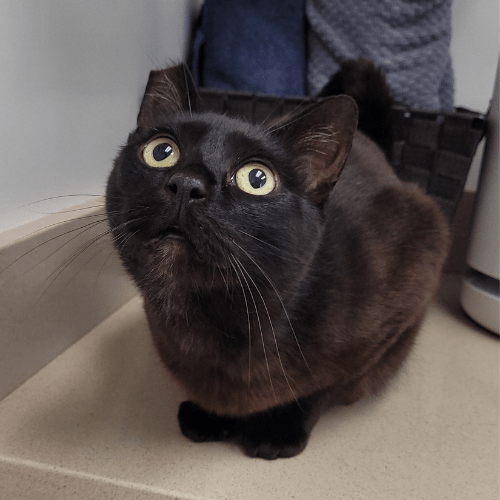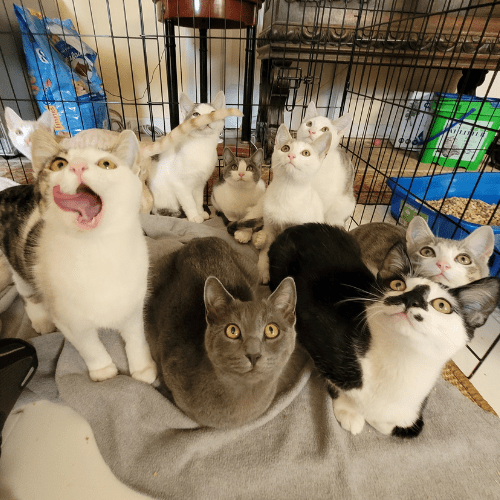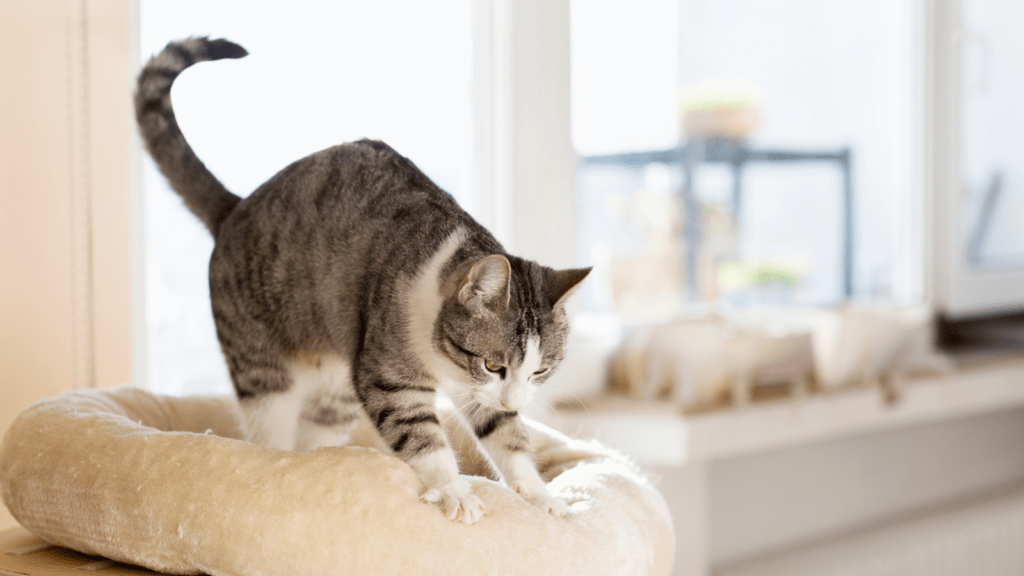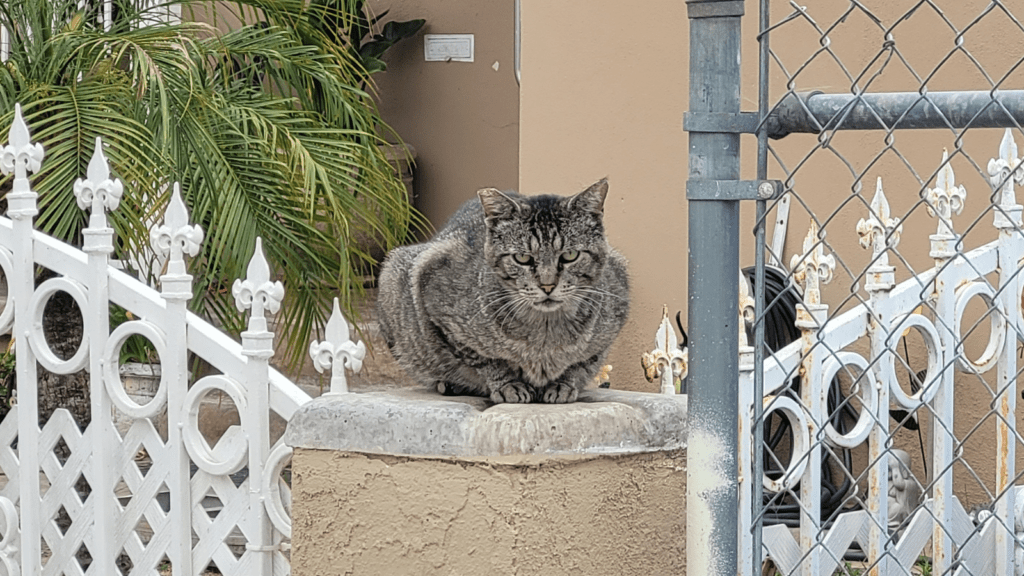
How Often Do You Take A Cat To The Vet?
Most people know that they should take their cat to the vet for check-ups and vaccinations, but many don’t know how often those check-ups need to happen. Depending on your cat’s age, lifestyle, and health condition, you may need to take them in as often as every few months or as seldom as once a year. Here is a general guide to help you determine how often your cat needs to see the vet.
Life-Stage Check-Ups
From young kittens to a healthy adult cat, each life stage of the cat’s life requires a different frequency of wellness visits to keep your feline friend in top condition. Before we jump in, if you see any unusual symptoms, lethargy, or lack of appetite, don’t hesitate and contact your vet immediately.
Pet insurance is a good way to reduce the long-term costs of unexpected visits or preventative care like dental cleaning, which helps prevent dental disease. While pet insurance doesn’t always cover the visit, over time, it can be beneficial and is something we do recommend.

Kittens
As a kitten, your kitty should have vet check-ups every three to four weeks until they are around six months old. These frequent visits will allow the vet to monitor their health with early detection and make sure they are developing properly, especially if they are rescue kittens. The vet will also give them their first round of vaccinations during these visits. Most kittens will receive their core vaccines at 6 to 8 weeks of age.
Adult Cats
Once your cat reaches adulthood, they will need routine checkups with the vet once or twice a year for a wellness exam and possibly vaccinations. If your cat is healthy and has no underlying medical conditions, this may be all they need. However, if your cat is overweight, has a chronic illness, or has underlying health issues, they may need to see the vet more often.
Senior Cats
As your cat gets older, they will likely need to see the vet more frequently for regular checkups. Senior cats typically need to be seen every six months for a physical exam, but this may increase to once every three or four months if they have health problems. Even if your senior cat is in good health, cats can develop serious health issues within a few weeks or months.
Dental Care
Cats need regular dental care just like humans do. Depending on your cat’s oral health, they may need to see the vet for a professional dental checkup every one to two years. Depending on their oral condition, your feline practitioners may request dental cleanings every few years, even for otherwise healthy adult cats.
Seasonal Care
In addition to annual checkups, you should also consider a seasonal wellness check up. Cats are susceptible to seasonal illnesses, such as fleas, ticks, and heartworms, even for indoor cats. Your vet can help you develop a flea and tick prevention plan to keep your cat healthy and parasite-free all year round.
Spring
As the weather starts to warm up, fleas and ticks become more active. Talk to your vet about using a monthly spot-on treatment or oral medication to protect your cat from these parasites. You should also start thinking about heartworm prevention if you live in an area where mosquitoes are common.
Kitten Season (Springtime)
If you live in an area with a lot of stray cats, you may see an influx of kittens during spring and summer. While it’s tempting to take one home, it’s important to remember that they will need frequent vet care. Kittens need to be seen by a vet every three to four weeks until they are six months old. They will also need to be vaccinated and spayed or neutered after they reach a few months of age.
Summer
During the summer, you’ll need to be extra vigilant about parasites. In addition to fleas and ticks, mosquitoes can also transmit heartworm to cats. Make sure your cat is up-to-date on their parasite prevention medication, and talk to your vet about any concerns you have.

Fall
As the weather starts to cool down, you’ll need to start thinking about heartworm prevention again. Mosquitoes are still active in many areas during the fall, so it’s important to keep your cat on a monthly preventative. You should also have your vet check your cat’s teeth and gums to ensure they are healthy and free of tartar buildup.
Winter
Cats don’t typically need any special care during the winter, but it’s important to keep an eye on their health. If you notice any changes in your cat’s behavior or appearance, make sure to take them to the vet for a physical examination. Regular vet visits will help ensure your cat stays healthy and happy all year round. Also, be sure to take extra precautions for your outdoor cats, such as insulated winter shelters.
Signs Your Cat Should See A Vet
Even if it’s not time for their regular vet visit, there are some signs that indicate your cat needs to see a vet right away. If your cat is showing any of the following signs, please call your vet or take them in for an appointment:
- Vomiting
- Diarrhea
- Unusual litter box activity
- Lethargy
- Loss of appetite
- Weight loss
- Excessive drinking
- Excessive urination
- Difficulty breathing
- Coughing
- Sneezing
- Eye discharge
- Ear discharge
- Itchy skin
- Hair loss
- Open wounds
- Limping or difficulty walking
- Seizures
If you are ever unsure whether or not your cat needs to see a vet, it is always better to err on the side of caution and make an appointment. Your vet will be able to tell you if your cat is just having a bad day or if they needs further care or medical attention.
Annual Check-Ups For Every Cat
Most people know that they should take their cat to the vet for check-ups and vaccinations, but many don’t know why. Cats need regular vet visits to ensure that they are healthy and to catch any potential health problems early on. Some of the things that a vet can check for during a routine visit include:
- Weight and body condition
- Temperature
- Heart rate and rhythm
- Respiratory rate
- Ears, eyes, nose, and throat
- Lymph nodes
- Skin and coat
- Digestive system
- Urinary system
- Musculoskeletal system
During a vet visit, your cat will also receive routine vaccinations to help protect them from deadly diseases. Vaccinations are especially important for kittens who are not yet fully vaccinated.
In addition to routine check-ups and vaccinations, your vet can also provide you with advice on how to keep your cat healthy and happy. They can help you create a wellness plan for your cat that includes things like diet, exercise, and preventive care.
New Cat Or New Owner Checkups
If you get a new cat (adopt, don’t shop!), it’s a good idea to find a veterinarian and do a baseline checkup to determine their overall health.
A baseline checkup is a vet visit that establishes your cat’s “normal” values for weight, temperature, etc. This way, if there are any changes in these values in the future, you and your vet will know something is wrong and can take action. The vet can also let you know about any local dangers to cats (such as poisonous plants) and give you advice on how to keep your cat safe.
If you are a new cat owner, especially for older cats, it is also a good idea to take your cat to the vet for a check-up. This way, you can learn about your cat’s health needs and get any questions you have answered. The vet can also give you advice on how to care for your cat and help you create a wellness plan.
If you are adopting an outdoor cat, you should also have the vet test for a few additional things and non-core vaccines. Here are a few to to ask your veterinarian about.
- Feline Leukemia
- Feline Panleukopenia (FPV)
- Feline Viral Rhinotracheitis (Respiratory virus)
- Feline Calicivirus (FVRCP vaccine)
- Feline Infectious Peritonitis (FIP)
- Feline Immunodeficiency Virus (FIV)
How Often Should You Take An Outdoor Cat To The Vet?
If your cat goes outside, they will need to see the vet more frequently than an indoor-only cat (if possible). This is because they are exposed to more dangers, such as diseases, parasites, and predators. Outdoor cats should see the vet at least once a year, but more frequent visits may be necessary if they have health problems.
Your vet can help you create a wellness plan for your outdoor cat that includes things like additional vaccines, parasite prevention, diet, and overall well-being. They can also advise you on how to keep your cat safe while they are outdoors or even help you transition them to indoor-only.
How To Make The Trip To A Vet More Pleasant For You And Your Cats
Many cats don’t like trips to the vet. Here are a few things you can do to make the trip more pleasant for you and your cat:
- Get a carrier that is big enough for your cat to stand up and turn around.
- Line the carrier with a towel or blanket to make it more comfortable.
- Put the carrier in a quiet, out-of-the-way place a few days before the vet visit so your cat can get used to it.
- Talk to your vet about ways to make vet visits less stressful.
Here are a few additional tips for moving and driving with cats!
Conclusion
As you can see, there is no one-size-fits-all answer to how often you should take your cat to the vet. Talk to your vet about what is best for your cat based on their individual needs. Checkups are important for all cats, but some cats, like senior cats, require more frequent vet visits than others. By following the advice of your vet, you can ensure that your cat stays happy and healthy for years to come!



